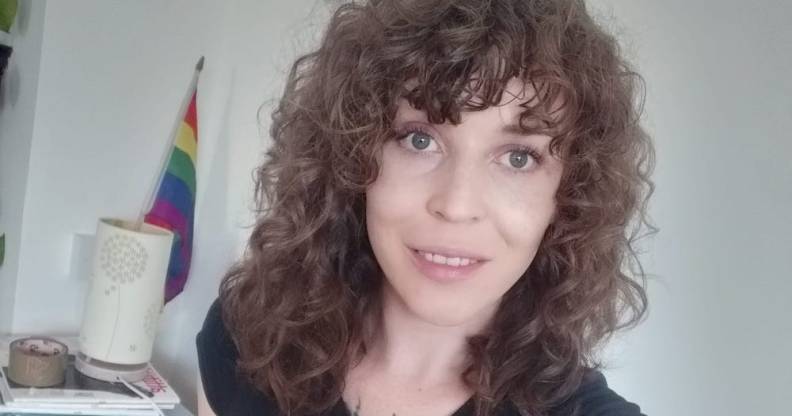Trans footballer signed to women’s FA league reveals horrific abuse she’s received before even stepping on the pitch

Trans footballer Sammy Walker was recently signed to a women’s Football Association league. (Samantha Walker/ Facebook)
A trans footballer who was recently signed to a Football Association (FA) league has revealed that she has been targeted with abuse before even stepping onto the pitch.
Sammy Walker, 30, has signed for a club in the Women’s National League South, the third tier of English women’s football, but told Goal that she is scared to reveal which club she will play for before her first match.
The FA, the governing body of association football in England, permits mixed-sex games up until they are 16 years old. Upon which, its policy states, the games are split by gender.
The agency said it deals with trans people’s applications on a case-by-case basis, and that “gender identity should not be a barrier to participation in football”.
Walker has already been signed to her football club and has been welcomed with open arms by her fellow players, but she has already been receiving abuse online.
She said: “The girls I play with have been super accepting of me, that I play at that level because I deserve to and I don’t have any kind of advantage.
“I don’t want to bring negative attention; it isn’t about me. We’re a team that work together to try to grind out wins, and as much as I want to fly the flag for trans women in football, I must balance that with my responsibilities as a team-mate.
“I’ve been the subject of a load of online abuse and the last thing I want is for people to start protesting at games where I’m not even playing.
“There is always potential for people to say, ‘there’s a target’. I also don’t want to scare the chairman. He has taken a big risk in accepting me and inviting me to play for the team.”
When she was younger Walker played for Watford, but quit the sport at 18 because of her struggle with accepting her gender identity. It took her until she was 26 years old to finally accept herself and come out as trans.
Describing her life before transitioning, she said: “It was difficult. As I was hitting puberty, things started changing and I became more aware of how uncomfortable I was in my own body.
“Seeing the state of the game, back in the 2000s, it made me realise there was no place for me in football.
“Being an out gay player is still something that haunts people, so the idea of being the first to play at a decent level and then transitioning, that was so overwhelming.
“I fell out of love with the game, I didn’t feel like it would ever be the place where I could be me.”
Walker slowly began to get involved in the game she loved again when she found LGBT-inclusive football clubs Soho FC and the Bristol Panthers in the Gay Football Supporters Network (GFSN) National League.
She played with them for two years, and added: “They knew exactly what I needed at that time in my life… My best moment in football since transitioning was captaining Soho FC at a national tournament in Liverpool.
“It was the first time I felt totally accepted and recognised based on my football ability and the fact I can lead a team.”
Now finally ready to play for an FA women’s team, Walker is currently not able to make her debut after she was injured by an overenthusiastic tackle, a fact she finds ironic.
She said: “Anyone else can go in for a slide tackle, they might injure the player, but that’s part of the game.
“If I went in for a tackle and somebody got injured, it would be because I’m a danger.
“I’m out injured for most of the season, I’ve done my knee ligaments. Out of the 20-odd girls in the squad, I’m the only one out because of a tackle.
“The concerns about trans women in football are largely down to misogynistic ideas that people [assigned male at birth] are massive, big and strong, a stereotypical idea of what a trans woman is.
“It doesn’t take from my game, but it does play on my mind. The rules are different for me.”

